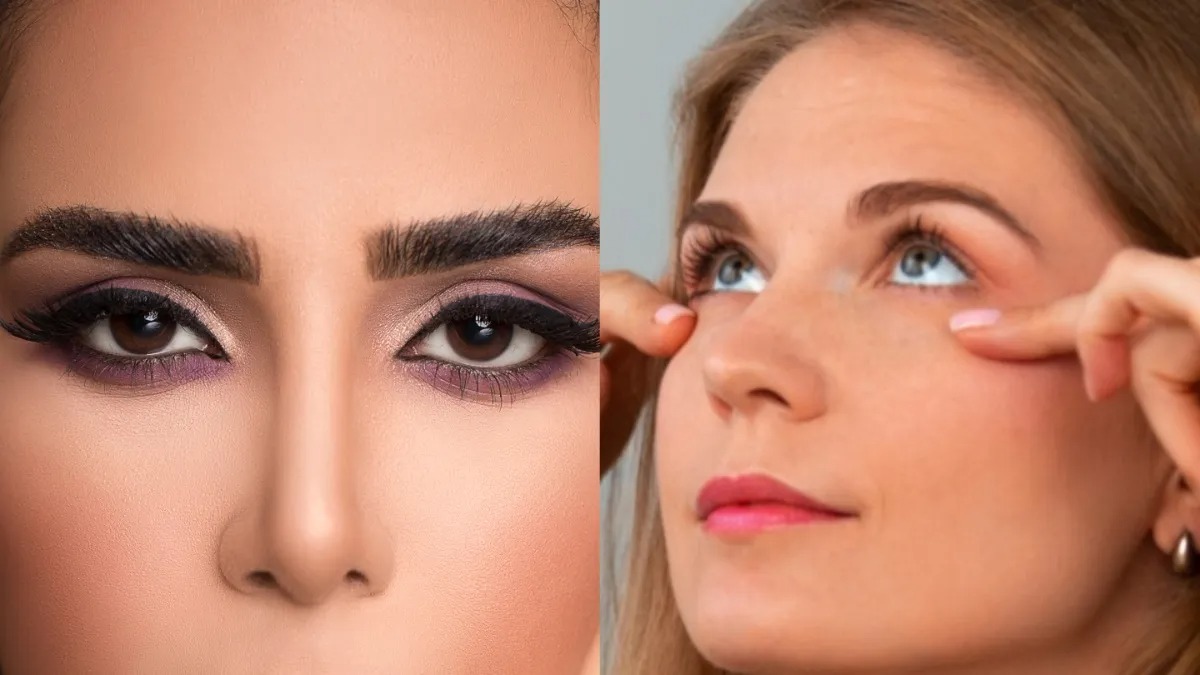Lifestyle
Essential Eye Makeup Tips: Experts Warn of Hygiene Risks

The allure of eye makeup is undeniable, offering a spectrum of colors that can transform a look. However, experts caution that these beauty enhancers can pose significant risks to eye health. According to Dr. Sharon Shitole, an eye specialist at Vensar Hospital in Pune, improper hygiene practices associated with eye makeup can lead to a variety of eye problems.
Many women rely on products like eye shadow, Kajal, eye-liner, and mascara to elevate their appearance. Yet, as appealing as these cosmetics are, they can also serve as a breeding ground for bacteria if not handled properly. This raises a critical question: how can individuals mitigate the risks associated with eye makeup?
Understanding the Risks of Eye Makeup
One of the primary concerns arises from using expired makeup. Products that have surpassed their expiration date can harbor harmful bacteria. Applying such makeup may lead to serious infections, resulting in symptoms like redness, watering, itching, and swelling of the eyes. In some cases, these infections can produce pus, necessitating medical attention.
Another risk stems from sharing eye makeup products. When friends borrow cosmetics like mascara or eye-liner, they may inadvertently transfer bacteria, increasing the likelihood of infections. This casual practice can endanger both parties’ eye health.
Long-term use of eye makeup can also have detrimental effects. Prolonged application of mascara and eye-liner may clog hair follicles at the base of eyelashes, leading to issues such as inflammation or styes. Additionally, applying makeup to the waterline—the inner lining of the eyelids—can block tear gland pores, resulting in dryness and irritation.
Essential Hygiene Practices for Eye Makeup Users
To minimize these risks, experts recommend several hygiene practices. First, investing in high-quality, branded skin care and eye care products that are within their expiration dates can significantly reduce potential harm. Regularly washing hands before and after makeup application is also crucial in preventing bacteria transfer.
It is vital to remove makeup each night, allowing the eyes to breathe. Failing to do so can exacerbate the risk of infection and irritation. Additionally, maintaining clean makeup brushes and applicators is imperative. Regularly deodorizing these tools can prevent the buildup of bacteria that could lead to eye infections.
Another key principle is to avoid sharing eye makeup products. Cross-contamination can occur easily, and the risk of infection increases when products are shared. Storing makeup in a cool, dry place can further help maintain its integrity and safety.
While eye makeup can be a form of artistic expression, neglecting proper hygiene can lead to adverse effects. The maintenance of healthy eyesight depends on various factors, including effective cleansing practices and the quality of products used. By adopting these recommended hygiene tips, makeup enthusiasts can enjoy the aesthetic benefits while safeguarding their eye health.
-

 World4 months ago
World4 months agoSBI Announces QIP Floor Price at ₹811.05 Per Share
-

 Lifestyle4 months ago
Lifestyle4 months agoCept Unveils ₹3.1 Crore Urban Mobility Plan for Sustainable Growth
-

 Science3 months ago
Science3 months agoNew Blood Group Discovered in South Indian Woman at Rotary Centre
-

 World4 months ago
World4 months agoTorrential Rains Cause Flash Flooding in New York and New Jersey
-

 Sports3 months ago
Sports3 months agoBroad Advocates for Bowling Change Ahead of Final Test Against India
-

 Top Stories4 months ago
Top Stories4 months agoKonkani Cultural Organisation to Host Pearl Jubilee in Abu Dhabi
-

 Science4 months ago
Science4 months agoNothing Headphone 1 Review: A Bold Contender in Audio Design
-

 Top Stories4 months ago
Top Stories4 months agoAir India Crash Investigation Highlights Boeing Fuel Switch Concerns
-

 Sports3 months ago
Sports3 months agoCristian Totti Retires at 19: Pressure of Fame Takes Toll
-

 Business4 months ago
Business4 months agoIndian Stock Market Rebounds: Sensex and Nifty Rise After Four-Day Decline
-

 Politics4 months ago
Politics4 months agoAbandoned Doberman Finds New Home After Journey to Prague
-

 Top Stories4 months ago
Top Stories4 months agoPatna Bank Manager Abhishek Varun Found Dead in Well









